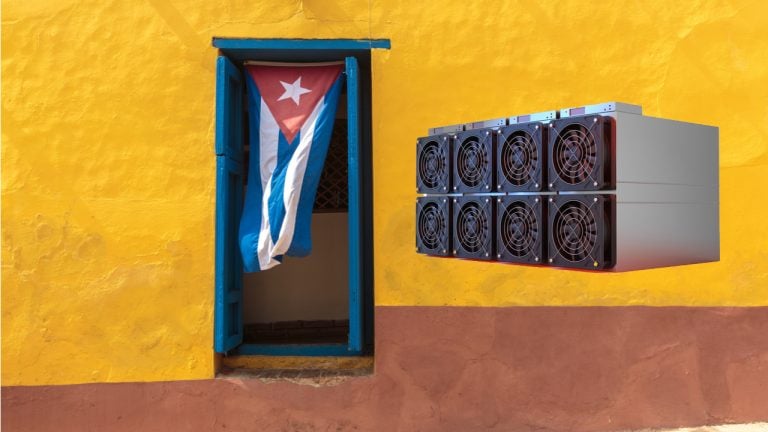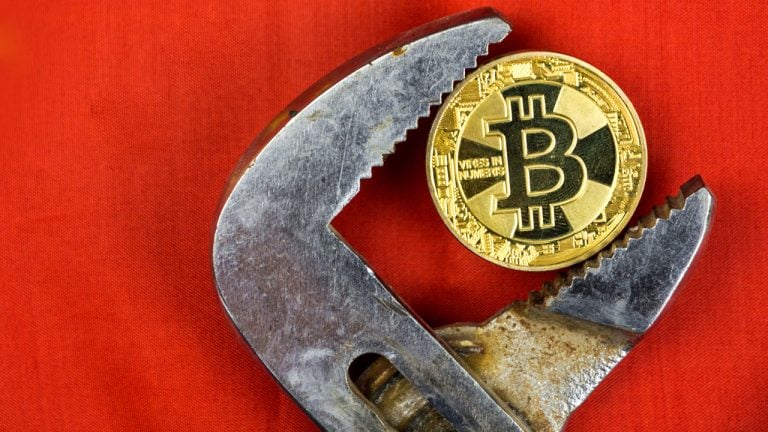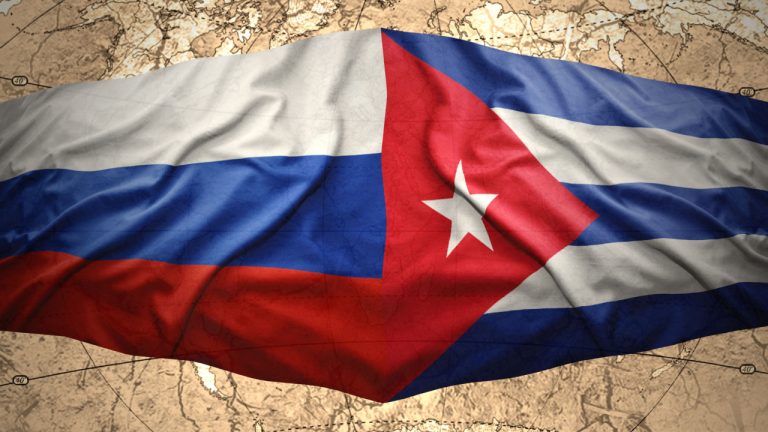 Hodl Hodl, a non-custodial Bitcoin exchange, has announced changes to its “Terms of Service” agreement affecting the availability of its lending services. The platform is now excluding residents of the U.S. as well as U.N. embargoed countries from its lending platform, citing “regulatory uncertainty” as the reason behind these changes. Hodl Hodl to Exclude US […]
Hodl Hodl, a non-custodial Bitcoin exchange, has announced changes to its “Terms of Service” agreement affecting the availability of its lending services. The platform is now excluding residents of the U.S. as well as U.N. embargoed countries from its lending platform, citing “regulatory uncertainty” as the reason behind these changes. Hodl Hodl to Exclude US […]
Cointelegraph’s latest documentary takes viewers to Cuba, the land of classic cars, communism, hyperinflation and Bitcoin.
Cuba, a country known for its unique blend of rich history, vibrant culture and political isolation, is the focus of Cointelegraph’s latest on-the-ground documentary. The Truth Behind Cuba’s Bitcoin Revolution explores Bitcoin’s (BTC) impact in one of the world’s last remaining communist states.
The documentary provides a firsthand account of how Cubans are using Bitcoin to navigate challenging economic circumstances, attract new businesses and save money in a censorship-heavy environment.
Journalist and Bitcoin enthusiast Joe Hall embarked on the journey to Cuba, determined to witness and capture the “Bitcoin revolution” that gained prominence in Alex Gladstein’s book Check Your Financial Privilege. Gladstein explains how Cubans have harnessed Bitcoin’s stateless, low-fee nature to escape financial oppression and secure their savings.
The documentary explores how Bitcoin has taken root in the Cuban financial landscape, brought to life through interviews and interactions with Cubans, as well as the co-founders of the “Cuba Bitcoin” community — Forte, Catrya and Bitalion (not their real names). Paco de la India, a regular Cointelegraph contributor, traveled with Hall and provides feedback and commentary throughout the documentary.
Bitcoin users in Cuba primarily engage in peer-to-peer transactions, buying and selling Bitcoin through Telegram and Signal groups. They run nodes with limited resources and evade online surveillance and access banned internet sites with VPNs.
Unlike many countries, Cuba is devoid of centralized crypto exchanges such as Coinbase or Binance. Plus, Cubans are banned from creating accounts due to the country’s poor diplomatic relations with the United States.
Consequently, the environment for Bitcoin in Cuba is a unique ecosystem that operates almost entirely outside of the reach of the state. Moreover, the resilient Bitcoin community is set against a backdrop of economic hardship. Seventy-two percent of Cubans live below the poverty line, and while the minimum monthly wage is approximately $30, Catrya — one of the documentary’s main characters — explains that it is closer to $13.

Cuba’s economic hardships are exacerbated by hyperinflation, with the Cuban peso losing more than 940% of its value in the last two years. Through testimonials and interviews with Cubans across Havana, it’s clear that Bitcoin has emerged as a lifeline for those looking to protect their savings from currency devaluation.
Related: Cuba Bitcoin community hosts BTC-only meetup
The documentary captures the grassroots adoption of Bitcoin in Cuba. It also highlights the efforts of the humble Cuba Bitcoin community, who spend their time educating and propagating the principles of Bitcoin to Cubans in an environment where the consequences of their actions are uncertain.
Ultimately, as Bitcoin continues to gain traction in Cuba, it remains to be seen how the government will react to the emergence of a parallel financial system. The Truth Behind Cuba’s Bitcoin Revolution provides a rare glimpse into a nation on the cusp of transformative change. Bitcoin could offer Cubans a glimmer of hope and freedom on an island where such aspirations have been long suppressed.
Magazine: ‘Elegant and ass-backward’: Jameson Lopp’s first impression of Bitcoin

Private businesses in Cuba could be poised to benefit from the cryptocurrency revolution in one of the world’s harshest business environments.
Bitcoin adoption could swell in Cuba, particularly if private businesses understand the upside to accepting Bitcoin (BTC) as currency. That’s according to a Cuban businessperson and Bitcoin advocate, Erich Garcia Cruz.
A recent emigrant to the United States, Cruz is a vocal proponent of Bitcoin adoption in Cuba. Cruz leads the remittance and money transfer services BitRemesas and QvaPay, and has been outspoken in supporting Cuban citizens using Bitcoin since 2020.
In an interview with Cointelegraph as part of an upcoming documentary, Cruz explained that Cubans can use Bitcoin “as a tool.”

While some Cubans use Bitcoin as a store of value, a means of exchange or a remittance tool, ultimately, it’s about getting “out from the Matrix,” he explained. Cruz referred to the country’s centrally planned and officially communist economy.
Cuba has no independent press, while the historic United States trade embargo makes it very hard for Cubans to access U.S. products, services and even applications. Bitcoin, on the other hand, is money independent of the state, and has no leader or central party.
Cruz explained that during a visit to El Salvador in 2022, one of his friends asked, “How do you teach about Bitcoin in Cuba if Cuba is run by a communist party?” Surely the party would be against Bitcoin?
“I don’t know if the government doesn’t know just how powerful Bitcoin is; they don’t know, and they are just thinking I’m teaching the people about coins in the casino, or if they are afraid of the hyper-Bitcoinization of the Cuban society.”
Cruz hints that the government may already understand how Bitcoin works, and maybe, “They can bypass some sanctions worldwide” using internet-based money.
Additionally, since 2021, the government has been warming up to cryptocurrencies, as private businesses can legally accept cryptocurrencies such as Bitcoin for goods and services. Cruz explains that more and more private companies should accept cryptocurrency instead of the Cuban peso (CUP) or moneda libremente convertible (MLC) — freely convertible currency:
“If you get paid with CUP or MLC, you are solving the customer’s problem, but you are creating a problem for you because owners are saying that then or later they will try to convert the CLP or MLC into international currency.”
The Cuban peso has devalued by more than 800% since its inception. If a Cuban bought Bitcoin at its all-time high of $69,000, they would still have more value in Bitcoin than pesos. Moreover, the MLC is a government-backed stablecoin used for purchases in state-run supermarkets. Cubans looking to save money typically do so in the U.S. dollar and, increasingly, Bitcoin.

Cruz shares the example of his father, who bought a small amount of Bitcoin with his Cuban peso pension fund three years ago. The pension fund has dramatically lost value as the Cuban peso continues to devalue, while Bitcoin has not only retained but increased in purchasing power:
“It’s not financial advice, but it’s better to store your value in Bitcoin than the CUP — a government-issued shitcoin.”
Nonetheless, despite the huge currency devaluation, Bitcoin suffers from a bad reputation in Cuba. Cruz was scammed by a crypto project before learning what Bitcoin is:
“We have no internet [in Cuba] until five years ago, and Bitcoin is 14 years old. The first contact with Bitcoin in our society was through scams.”
Cuba has a highly educated population and university education is free; however, the island is sheltered from Western influences, and the internet is a relatively new tool. The internet, as Cruz points out, only began to penetrate the country in a meaningful way over the past five years.
Related: Cuba Bitcoin community hosts BTC-only meetup
Cruz’s work, and that of the Cuban Bitcoin community, targets private businesses in Cuba, making it an area in which Bitcoin adoption could thrive:
“You have to teach the people who have the power to embrace that solution. And that’s the private sector. Okay? There is no law. There is no law that forbids the business from accepting Bitcoin. Not yet.”
Cruz’s interview will feature in an upcoming documentary about Bitcoin in Cuba.
Magazine: Peter McCormack’s Real Bedford Football Club puts Bitcoin on the map

The Cuba Bitcoin community hosted the country’s first-ever Bitcoin-only meetup in Havana over the weekend, attended by 60 crypto-curious Cubans.
Cuba Bitcoin hosted the meetup at the Bitcoin-friendly bar and restaurant Pazillo. Cuba Bitcoin is a lively group of Bitcoin advocates and activists whose discussions on Telegram between anonymous social media accounts that hide people’s identities, had yet to make it into the real world.

Cuba’s foray into Bitcoin signifies a departure from the centralized economic model that has shaped Cuba’s economic progress for decades. Despite limited internet access, financial constraints, and a socialist-styled government, the meetup underscored that Cubans are increasingly turning to crypto as a means of financial freedom and an “exit” from the local economy.
Co-founder of Cuba Bitcoin, Forte11 (not his real name) told Cointelegraph:
“The mission of the meetup is to educate–not convince Cubans about the potential of Bitcoin in Cuba. Each person has the freedom of expression to decide what they want to do. It’s education, education, and education first and foremost.”
While Bitcoin meet-ups in the Western World might be dominated by white, middle-aged men, Cuba’s Bitcoin-only meet-up included a wide range of characters. From small business owners to software developers to teenage students to grandmothers, more than 60 people turned up. Paco de la India, a Bitcoin vlogger and evangelist also attended, delivering a talk on Bitcoin adoption around the world.
Although Cuba is technically a centrally-planned economy, the state recently relaxed laws on private business ownership. This arena is the target market for Bitcoin merchant adoption, as coupled with the recent crypto regulations passed in Cuba, it is now legal to accept cryptocurrencies for goods and services.
To demonstrate this, the group sold Cuba Bitcoin t-shirts for 1,000 Satoshis ($0.30) so attendees would learn about the layer-2 lightning network. The T-shirts sold out.

Nonetheless, the main talk of the day revolves around how to get one's hands on Bitcoin. In a country where mobile Internet penetration remains relatively low and smartphones are not yet ubiquitous, downloading Bitcoin applications or wallets is out of reach for many Cubans.
What’s more, due to the US trade embargo, familiar exchanges, such as Coinbase, Kraken, and Gemini are not welcome in Cuba. As a result, to buy Bitcoin, Cubans tend to do so the OG way, through peer-to-peer exchange.
Bitcoin Cuba co-founder “C” delivered a talk on how to buy bitcoin, peer-to-peer through telegram trading groups. Through a lightning-enabled tipping bot chat on Telegram, Cubans can buy bitcoin in exchange for Cuban pesos, or the Cuban MLC, which is a “dollar-backed” government-owned stablecoin. Mobile transfers can also make purchases as more and more Cubans access, government-run banking services. Most trades in the telegram groups range between $.20 to $50; the average Cuban owns just $40 a month.
Related: ‘The Bitcoin Standard’ author becomes economic adviser to El Salvador
A well-known Cuban crypto enthusiast, Erich Garcia Cruz also attended the meetup. He told Cointelegraph:
“Using Bitcoin you can be a freedom person. We have a lot of opportunity here if we teach to all the businesses to use Bitcoin as a payment method; to use Bitcoin as a freedom tool–as that’s the path.”
Now more than 10 businesses in Cuba’s capital, Havana, accept Bitcoin for goods and services. Buoyed by the success of the first Cuba Bitcoin meetup, the community intends to set up regular future meetups and events.
This interview is part of an upcoming Youtube documentary about Bitcoin adoption in Cuba. Subscribe here.
 Sergey Lavrov, the Russian foreign minister, started his tour of Latin America on April 17, landing first in Brasilia to hold high-level talks with Brazilian President Luiz Inacio ‘Lula’ da Silva and Brazilian Foreign Minister Mauro Vieira. Lavrov insisted that Russia was building a “multipolar” world, while Vieira rejected the unilateral sanctions enacted against Russia. […]
Sergey Lavrov, the Russian foreign minister, started his tour of Latin America on April 17, landing first in Brasilia to hold high-level talks with Brazilian President Luiz Inacio ‘Lula’ da Silva and Brazilian Foreign Minister Mauro Vieira. Lavrov insisted that Russia was building a “multipolar” world, while Vieira rejected the unilateral sanctions enacted against Russia. […] Cryptocurrency and technology proponents have recently been discussing a new bipartisan bill called the “Restricting the Emergence of Security Threats that Risk Information and Communications Technology (RESTRICT)” Act. In addition to targeting firms such as Kaspersky, Huawei, and Tiktok, opponents of the bill believe one of its provisions will punish ordinary Americans for leveraging a […]
Cryptocurrency and technology proponents have recently been discussing a new bipartisan bill called the “Restricting the Emergence of Security Threats that Risk Information and Communications Technology (RESTRICT)” Act. In addition to targeting firms such as Kaspersky, Huawei, and Tiktok, opponents of the bill believe one of its provisions will punish ordinary Americans for leveraging a […]
OpenSea’s terms of service explicitly prohibit individuals and organizations from sanctioned regions from using its platform.
Nonfungible token (NFT) marketplace OpenSea has been banning artists and collectors from Cuba, citing United States sanctions as the key reason behind its action.
According to a report published by Artnet, 30 artists and collectors have been banned from the popular NFT marketplace until now. The most noted artist to face the axe includes well-known Havana-based artists Gabriel Guerra Bianchini and Fábrica de Arte Cubano.
OpenSea marketplace has mentioned in its terms of service that it explicitly prohibits sanctioned individuals and individuals in sanctioned jurisdictions. The NFT marketplace’s adhesion to United States sanctions was widely known and included countries such as Venezuela, Iran and Syria. However, the recent blocking of Cuban artists adds the country to that list as well.
"We continue to holistically evaluate what other measures need to be taken to serve our community and comply with applicable law," an OpenSea Spokesperson told Cointelegraph.
A Twitter profile called NFT Cuba Art revealed earlier in December that OpenSea had blocked them from viewing or listing their art while they still had access to their wallets. Erich García Cruz, the founder of Bit Remasa, responded that their NFT collections were banned too. Cryptocuban founder Gabriel Bianchini added that the future of Web3 doesn’t look decentralized.
So sad to see that the future of web3 won’t be decentralized @nftcubaart and @GianniDalerta are part of the Cuban web3 history and so much more! ❤️
— GabrielBianchini.ethᵍᵐ (@GGBIANCHINI) December 13, 2022
Apart from OpenSea, several crypto platforms had to shut down their services for Russian customers in the wake of the new European Union sanctions issued after the war in Ukraine began earlier this year.
Related: Proactive sanctions can help spare the ecosystem: Chainalysis exec
While the cryptocurrency ecosystem is built on the ethos of decentralization, the majority of the intermediaries and firms facilitating various services still very much work like most centralized Web2 companies.
The crypto community was not very pleased with the auctions of the NFT marketplace and called for an end to intermediaries. Another user said that there is a need for real decentralized platforms that don't care about nationalities
 Several small investors have manifested that the constant blackouts in several parts of Cuba have made cryptocurrency mining unsustainable, leaving them unable to operate their rigs. The blackouts also affect telecommunications, leaving some of these operations that rely on off-grid power plants without the internet needed to complete mining tasks. Cryptocurrency Mining in Cuba Not […]
Several small investors have manifested that the constant blackouts in several parts of Cuba have made cryptocurrency mining unsustainable, leaving them unable to operate their rigs. The blackouts also affect telecommunications, leaving some of these operations that rely on off-grid power plants without the internet needed to complete mining tasks. Cryptocurrency Mining in Cuba Not […] During the last few weeks bitcoin’s cost of production has been higher than the leading crypto asset’s spot market value and in turn, this has put massive pressure on bitcoin miners. On Nov. 30, 2022, statistics show if miners paying for electricity pay roughly $0.12 per kilowatt hour (kWh), only three application-specific integrated circuit (ASIC) […]
During the last few weeks bitcoin’s cost of production has been higher than the leading crypto asset’s spot market value and in turn, this has put massive pressure on bitcoin miners. On Nov. 30, 2022, statistics show if miners paying for electricity pay roughly $0.12 per kilowatt hour (kWh), only three application-specific integrated circuit (ASIC) […] Both facing sanctions, Russia and Cuba are looking into alternative options for cross-border payments, including cryptocurrencies, a Kremlin advisor has unveiled in Havana. Moscow is already developing a mechanism for crypto settlements to circumvent financial restrictions imposed over its invasion of Ukraine. Crypto and Ruble Considered for Payments in Trade Between Russia and Cuba The […]
Both facing sanctions, Russia and Cuba are looking into alternative options for cross-border payments, including cryptocurrencies, a Kremlin advisor has unveiled in Havana. Moscow is already developing a mechanism for crypto settlements to circumvent financial restrictions imposed over its invasion of Ukraine. Crypto and Ruble Considered for Payments in Trade Between Russia and Cuba The […]